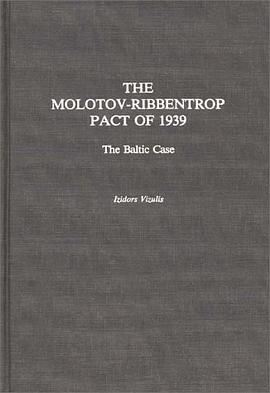

This volume analyzes the effects of the Molotov-Ribbentrop Pact of 1939 on the Baltic States and Eastern Europe. This Nazi-Soviet non-aggression treaty catapulted into worldwide consciousness in the summer of 1989 as a 370-mile human "Freedom" chain denied its legitimacy. Stretching across Baltic nation-states, the chain's human links proclaimed the password "Freedom". Secret protocols contained in this Treaty led to 50 years of Soviet occupation. In the atmosphere of glasnost and perestroika, Estonians, Latvians, and Lithuanians now demand restoration of their human and national rights and decolonization. While the news media focuses upon these events, this volume details the historical causes of the Treaty, its contemporary consequences, and its present day challenge. With the Molotov-Ribbentrop Pact, Hitler's Germany and Stalin's Russia put aside their ideological difference and practiced "expedient politics", Eastern Europe and the Baltic States were partitioned into German and Russian spheres of influence. This 50 year old pact continues to effect the Baltic States. It focuses our attention sharply on the consequences of secret deals made without regard to national and human rights. On the frontline of soviet defense, the Baltic challenge to the Soviet Union has worldwide implications. After decades of denying their existence, the Soviet Union in August, 1989, finally admitted that the secret protocols of 1939 were an historical fact. However, they continued to deny that the protocols had any bearing on the incorporation of the Baltic States into the Soviet Union. As of this writing, it seems evident that notwithstanding the era of glasnost, the Soviet government still lacks the determination to state the truth: that the incorporation of Estonia, Latvia, and Lituania was an act of aggression, carried out against the will of sovereign peoples.
具體描述
讀後感
評分
評分
評分
評分
用戶評價
相關圖書
本站所有內容均為互聯網搜索引擎提供的公開搜索信息,本站不存儲任何數據與內容,任何內容與數據均與本站無關,如有需要請聯繫相關搜索引擎包括但不限於百度,google,bing,sogou 等
© 2025 qciss.net All Rights Reserved. 小哈圖書下載中心 版权所有




















